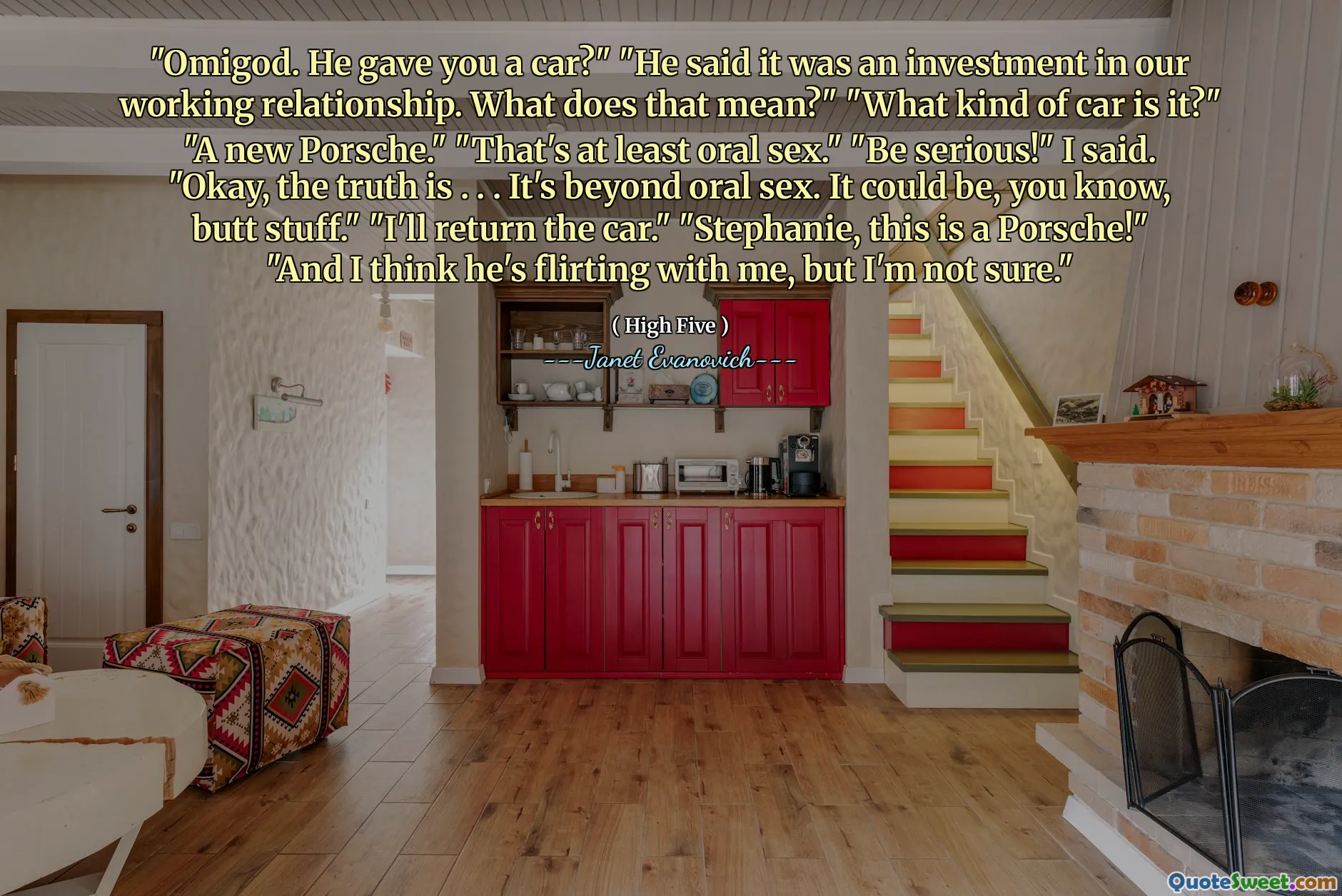
"Omigod. He gave you a car?" "He said it was an investment in our working relationship. What does that mean?" "What kind of car is it?" "A new Porsche." "That's at least oral sex." "Be serious!" I said. "Okay, the truth is . . . It's beyond oral sex. It could be, you know, butt stuff." "I'll return the car." "Stephanie, this is a Porsche!" "And I think he's flirting with me, but I'm not sure."
This exchange from Janet Evanovich's "High Five" offers a witty and provocative insight into the dynamics of gift-giving and interpersonal relationships, particularly in a workplace setting. The car, a Porsche, is not just a mere vehicle but a loaded symbol of favor, status, and perhaps ulterior motives. The playful banter surrounding the meaning behind the gift, escalating from oral sex to more explicit possibilities, underscores the complexity and sometimes uncomfortable nuances of interactions where power, attraction, and professionalism intersect. It hints at the tension between appreciating generosity and the suspicion about the giver's intentions. The protagonist's impulse to return the car conveys a desire to maintain integrity and avoid indebtedness linked to ambiguous advances. Meanwhile, the friend's insistence, paired with humor, reflects an attempt to lighten the awkwardness and accept the situation pragmatically, acknowledging the value of the gift—both materially and symbolically. The dialogue captures the combination of humor and discomfort that can surface when navigating gift exchanges that blur personal and professional boundaries. Additionally, the casual yet sharp language presents a modern, relatable depiction of young adult interactions, rich in layers of meaning both explicit and implied. This passage exemplifies Janet Evanovich's knack for blending chuckle-worthy moments with nuanced character development, making the reader reflect on how objects and intentions intertwine to shape relationships and social dynamics.






